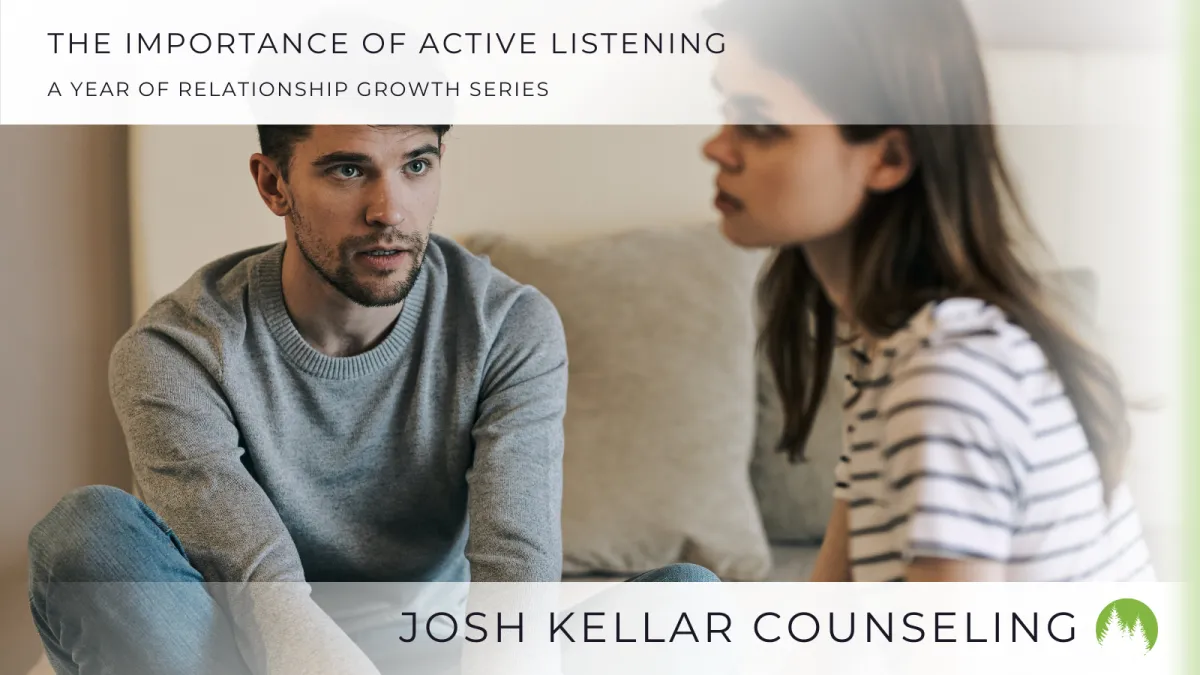
The Importance of Active Listening in Relationships
"Listening is an attitude of the heart, a genuine desire to be with another which both attracts and heals." – J. Isham
The Importance of Active Listening
Active listening – it's more than just not talking while the other person speaks. It's about fully engaging and understanding your partner’s perspective. Think of active listening as a gift you give your partner, where you offer them your full attention and understanding.
Understanding Active Listening
Active listening involves being fully present in the moment, paying attention to your partner without distractions, and responding in a way that shows you truly understand and care about what they are saying. This practice enhances communication, fosters empathy, and strengthens your emotional connection.
Practical Steps to Hone Active Listening Skills
Here’s how to hone your active listening skills:
Focus Fully: Put away distractions and listen with your whole being. This means turning off your phone, closing your laptop, and giving your partner your undivided attention. Make eye contact and show through your body language that you are engaged.
Reflect Back: Paraphrase what you heard to show you understand and to clarify. This involves summarizing or restating what your partner has said in your own words. For example, you can say, "What I hear you saying is..." or "It sounds like you're feeling..."
Empathize: Try to feel what your partner is feeling and respond with empathy. Acknowledge their emotions and validate their experiences. Statements like, "I can see how that would be really difficult for you," or "I understand why you feel that way," show that you are trying to connect with their emotions.
The Weekly Challenge: Practicing Active Listening
Your action for the week: Practice active listening in your daily interactions with your partner. Consider the following steps:
Designate Listening Time: Set aside specific times to practice active listening. This could be during meals, before bed, or any other time when you can focus without distractions.
Engage Fully: During these times, give your partner your full attention. Listen without interrupting, and focus on understanding their perspective.
Reflect and Clarify: Paraphrase what your partner says to ensure you understand correctly. Ask clarifying questions if needed.
Respond with Empathy: Acknowledge your partner’s feelings and respond with empathy. Show that you care about their experiences and emotions.
Overcoming Challenges in Active Listening
Active listening can be challenging, especially in the midst of busy lives and distractions. Here are some tips to help you overcome these obstacles:
Practice Patience: Active listening requires patience. Be patient with yourself and your partner as you develop this skill.
Eliminate Distractions: Make a conscious effort to eliminate distractions during conversations. This helps you stay focused and present.
Seek Mutual Understanding: Strive for mutual understanding rather than trying to win an argument or prove a point.
Seek Professional Guidance: If you find it challenging to practice active listening, consider seeking support from a therapist or counselor. Professional guidance can provide you with tools and strategies to improve your listening skills.
Embracing Active Listening in Your Relationship
Active listening is a powerful tool that can transform your communication and deepen your emotional connection. By focusing fully, reflecting back, and empathizing with your partner, you create a supportive and understanding environment where both partners feel valued and heard.
If you’re struggling to tune into each other's frequencies, don’t worry. I’m here to help you tune in and clear up the static. Together, we can work towards enhancing your communication and strengthening your relationship.
Josh Kellar Counseling, PLLC
© 2025. All Rights Reserved.

